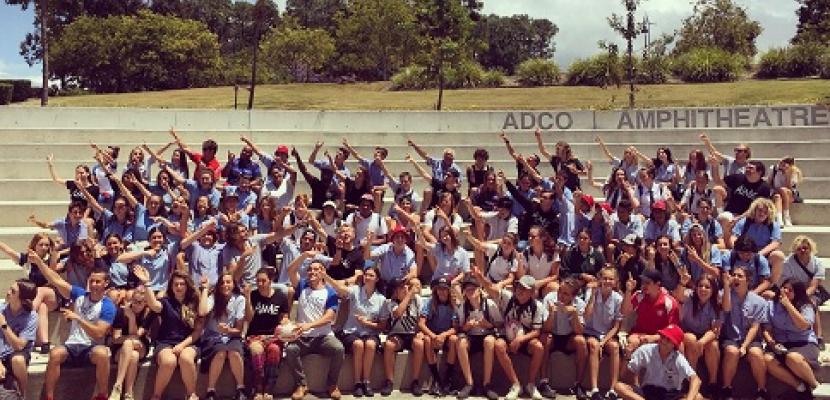
More than 100 Indigenous high school students from schools across the Gold Coast and Tweed attended the AIME mentoring end of year celebration at Bond University on Tuesday, October 27, aimed at providing support for students to transition to university, further education or employment.
The Year 9 through to Year 12 students received mentoring from a range of successful multicultural identities, including Zimbabwean-born Australian actor Pacharo Mzembe, current star of the acclaimed theatre production 'Prize Fighter' and a company of performers from the Aboriginal Centre for Performing Arts (ACPA).
Also in attendance as mentors were Kristal West, contestant on season two of The Voice Australia and granddaughter of the late Indigenous activist Eddie Mabo, alongside rugby league legend and owner of successful local business BSKT Cafe, Selasi Berdie.
Rounding out the special guests were Jose Bishop, editor of online travel platform On Stranger Shores, whose unique childhood as the son of a Cirque Du Soleil performer saw him travel the world for over ten years with the touring show, Verekai.
All identities participated in a mentoring panel session titled Window to Fame, where the panellists shared their personal stories with the students about life, happiness and achieving success.
AIME is a dynamic education program focused on providing the skills, opportunities, belief and confidence for young Indigenous high school students to succeed in the next phase of life.
The program connects approximately 4,500 Indigenous mentees with 1,600 mentors in 37 locations across Australia, in collaboration with 18 partner universities.
In 2014, the high school completion rate for Year 12 Indigenous students participating in the AIME program was 93.2 per cent, 6.7 per cent above the national non-Indigenous average of 86.5 per cent.
AIME program director Tom Wensley said AIME was unique in that it focused on 'youth mentoring youth', with young Indigenous leaders from various industries providing mentorship.
"The program is all about exposing young students to the opportunities that are out there, whether that be university, further education, training or employment, and giving them the confidence to make their dreams a reality," he said.
"A lot of the students haven't had family members who have gone through university before, so it can seem quite intimidating. By getting them on campus in the early years of high school, they are able to build the familiarity and self-belief that they could see themselves studying in this environment.
"We bring them on campus five times each year and this latest session is an end of year celebration, as they transition to the next stage of their education.
"We’re on track to reach our target of engaging 10,000 Indigenous high school students annually by 2018 and we couldn’t do it without the support of our university, corporate and philanthropic partners."